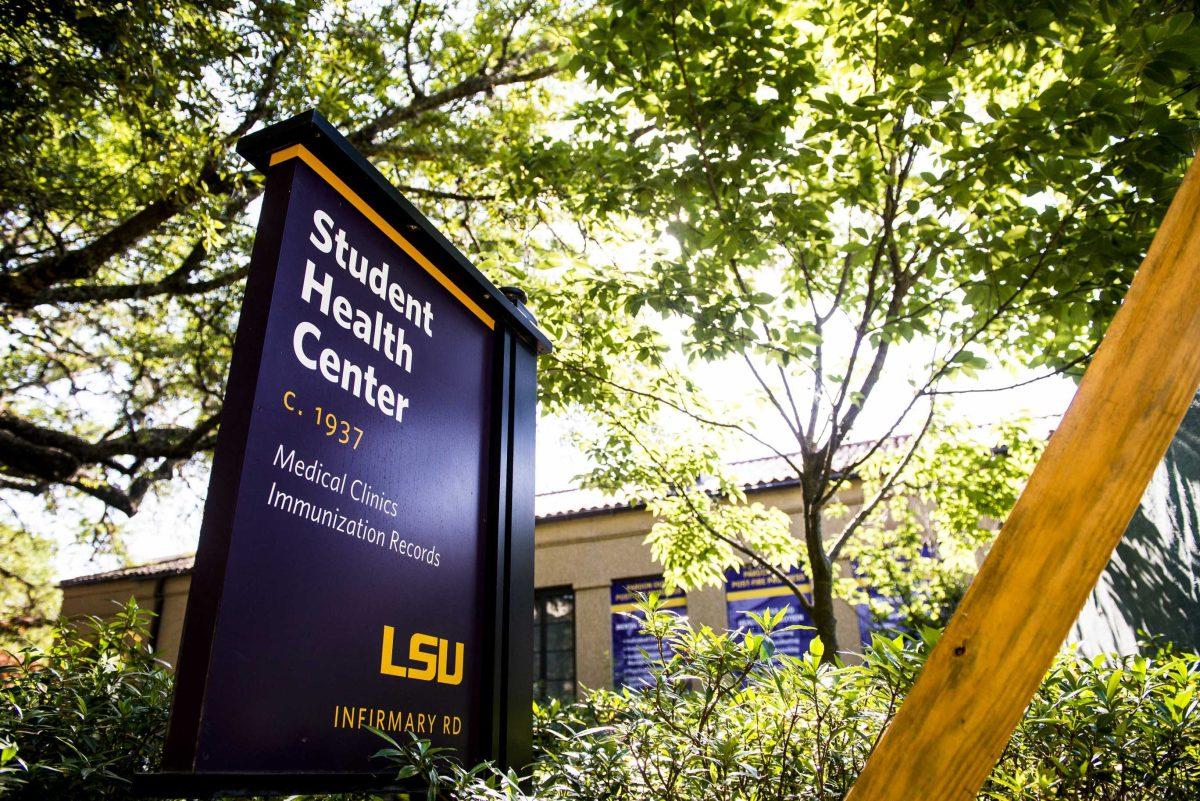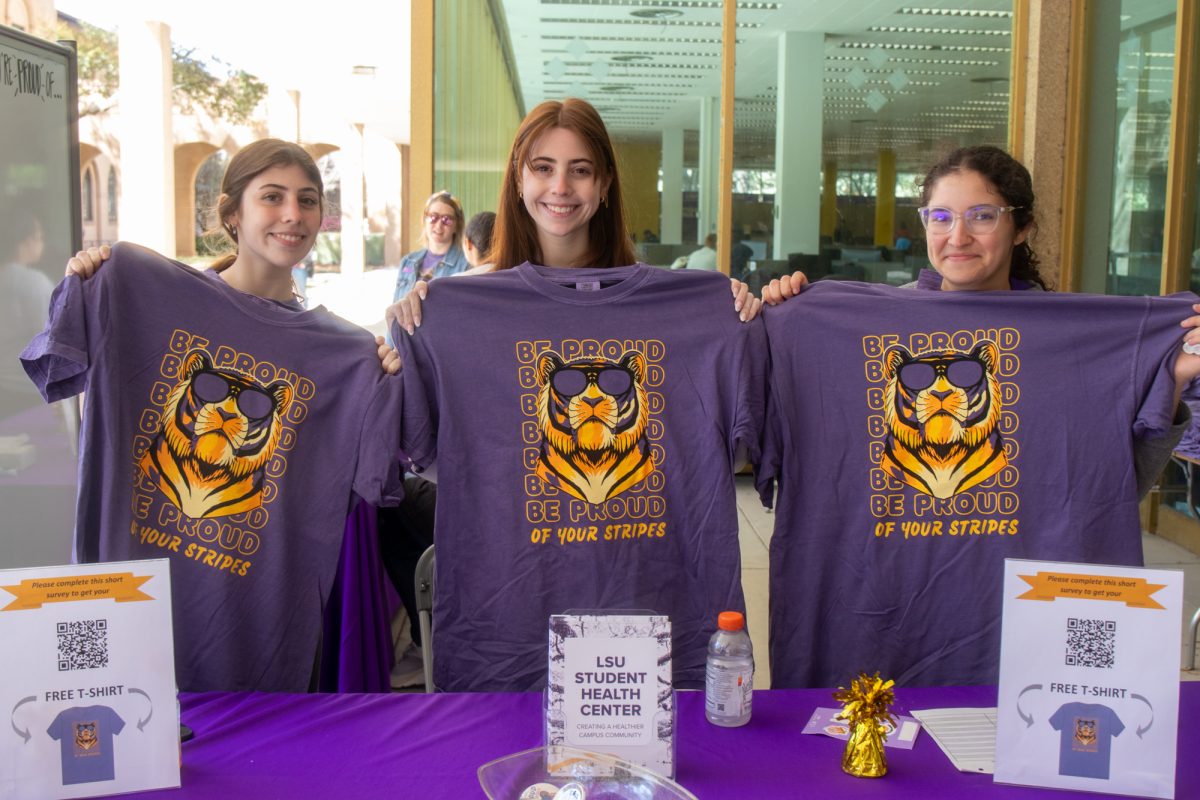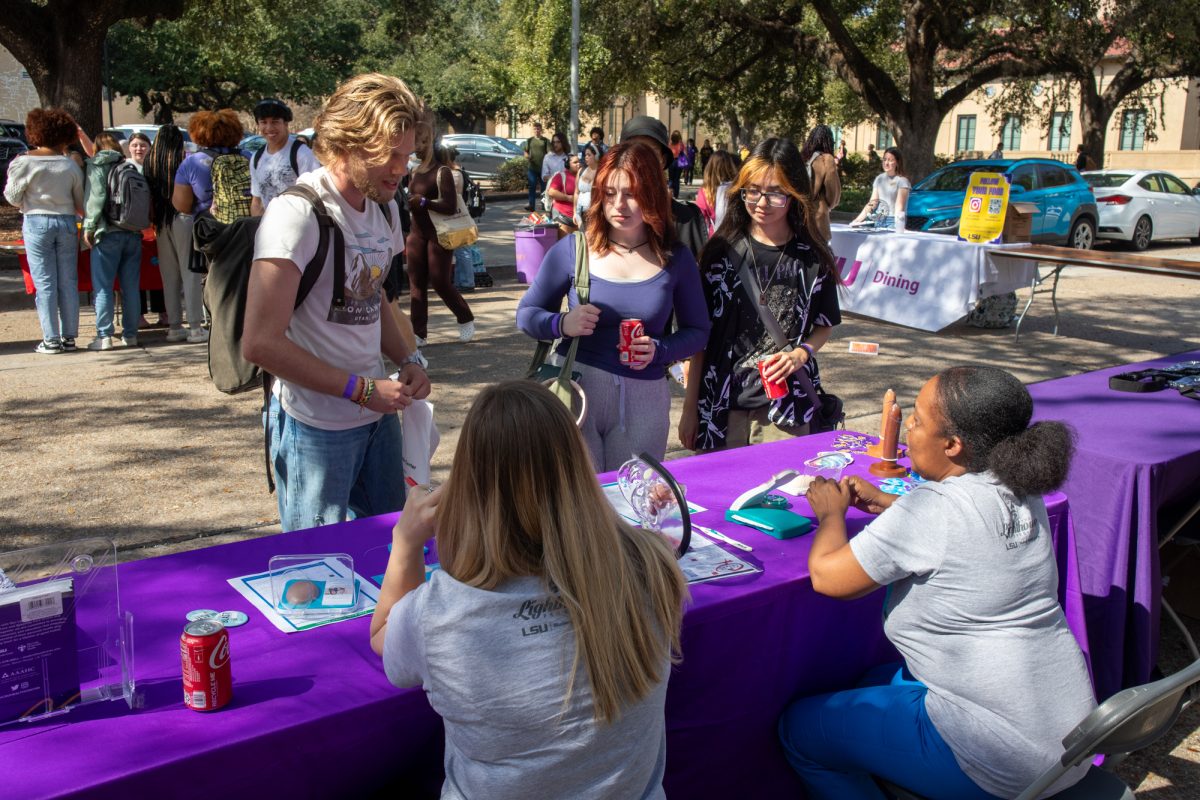More and more students have sought support and resources from the University’s Lighthouse Program since 2016.
In 2016, 53 students sought Lighthouse support or resources. That number jumped to 92 in 2017. In 2018, the program saw 82 students, five of whom were males.
The program provides interpersonal violence prevention, advocacy and support to college students, a group commonly victimized by sexual violence.
Susan Bareis, the program’s coordinator and the assistant director of health and wellness promotion at the LSU Student Health Center, said 20 to 25 percent of women experience some kind of sexual violence during college.
College women ages 18 to 24 are three times more likely than other women to be victims of sexual violence, according to the Rape, Abuse and Incest National Network, an anti-sexual violence organization.
Bareis said a handful of students sought support when Supreme Court Justice Brett Kavanaugh and his main accuser, Christine Blasey Ford, testified before the Senate Judiciary Committee in September 2018. This hearing empowered some students to come forward with their experiences of sexual violence and re-traumatized others.
The #MeToo movement has been viral for over a year, and celebrity and non-famous sexual assault victims alike have used it to tell their stories and expose their accusers. Bareis said it has made the issue of sexual assault something people are more comfortable talking about and reporting.
Although dozens of students receive aid from the Lighthouse Program annually, many choose to not report their encounters with sexual violence to law enforcement.
“Nationally, when you look at sexual assaults on college campuses, 90 percent of people don’t report,” Bareis said.
Instead of reporting and sparking investigations, students tend to look for resources to help them move forward quickly. When students do decide to report incidents to the police, Lighthouse advocates like Bareis assist them in doing so.
Bareis said one reason victims opt out of reporting is because of shaming and self-blame. It is common for sexual assaults to involve alcohol use, which sometimes makes students believe what happened to them was their fault.
Students also fear the social repercussions of reporting, Bareis said. The students she sees are rarely victimized by total strangers. Often, the perpetrator is a current or former partner, a classmate or someone else within their social circle.
Bareis commonly sees students who were sexually assaulted by close family members when they were children. Resources are available to all victims, regardless of when the violence occurred.
Preventing dating violence and helping victims of stalking are also facets of Lighthouse. Bareis said even the non-physical manipulation and coercion those students face are part of the continuum of sexual violence.
Victims have the right to choose to pursue investigations through the University, LSUPD or not at all. Lighthouse advocates inform students of such rights and let them decide what action they want to take.
“They’re making all these decisions because sexual violence is about power and control — it’s not about the actual sexual act,” Bareis said. “We’re wanting to give these survivors their power back.”
The program works closely with LSU Residential Life and can sometimes provide victims with emergency on-campus housing. Students may want a safe place to go to after incidents occur at off-campus residences, or they may need to relocate on campus to distance themselves from abusers.
Bareis has assisted students in getting housing through IRIS, a Baton Rouge domestic violence center that provides services for affected women and children.
Lighthouse also provides medical care and covers the costs of disease and pregnancy testing, Plan B and other medications victims may need. It helps with medical follow-ups and offers access to counseling.
Sexual assault nurse examiners can be dispatched from 8 a.m. to 5 p.m. Monday through Friday at the Student Health Center. While these nurses collect evidence and administer rape kits, Bareis comforts the victims.
“When they’re having this very invasive exam, I’m there to support them,” Bareis said. “I’ve held many hands when they’ve had to draw blood.”
That level of support is something Bareis wants to highlight about the program. Lighthouse advocates try to make victims as comfortable as possible during those processes.
Advocates send mental health referrals to the Student Health Center, community providers and Baton Rouge’s Sexual Trauma Awareness and Response. STAR aims to prevent sexual violence and help survivors move past their trauma. Bareis said she does a lot of work with STAR and it has the capability to create community-based groups for survivors.
Bareis said Lighthouse services are available to all University students, and they are welcome to come to the Student Health Center from 8 a.m. to 5 p.m. on weekdays. If students need resources or evidence collected after hours or on weekends, they can call STAR at 225-383-RAPE.










